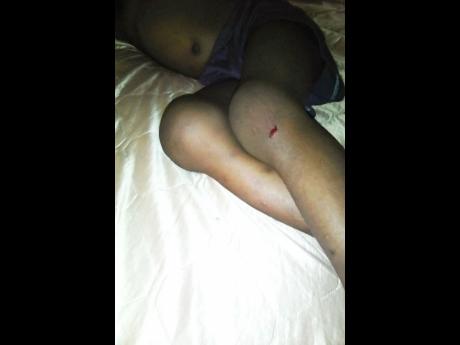Lifesaver shortage threatens haemophiliacs
Jamaicans who have the rare bleeding disorder haemophilia are at grave risk of death in the event of a traffic accident, as only one hospital in the island has ready access to the life-saving medical intervention.
Dosages of Factor VIII, a clotting protein that inhibits bleeding trauma, are primarily accessible at the University Hospital of the West Indies (UHWI), although Kingston Public Hospital occasionally has stock. Director of public relations and communications at the Ministry of Health, Stephen Davidson, confirmed that Factor VIII was only available at the UHWI.
Co-chair for The Haemophilia Society of Jamaica, Alex Parkinson, who, along with his two brothers, has the genetic bleeding disorder, said the untimely death of one member has the entire community on tenterhooks.
“He developed a brain bleed and because he didn’t have the medication to stop the bleeding, he basically succumbed to his injuries,” Parkinson told The Sunday Gleaner.
“... For somebody with a normal brain bleed, you might have half an hour to treat that person, but for a person with haemophilia, you have a five-minute span to get the treatment, and if you don’t get that treatment, then that’s probably it.”
Parkinson, an accountant who lives and works in Kingston but who travels back and forth to Montego Bay frequently, harbours fears that he and other haemophiliacs are at risk if they suffer serious injuries during cross-island drives.
“I’m very concerned about my life at times. If on my route to Montego Bay, I crash in St Ann, and they carry me to St Ann’s Bay Hospital, there’s no medication there,” the 28-year-old said. “It wouldn’t make much sense, because they can’t stop the bleeding if they don’t have the treatment.”
The Haemophiliac Society is calling for the Government to subsidise the cost of Factor VIII, which is out of the reach of many outpatients. An overseas-based donor organisation sometimes ships supplies to Jamaica, but when those are out, many haemophiliacs find the cost of medication prohibitive.
“When my eldest brother got an injury back then, we could not source any factor for him, and it is very, very expensive. I am not sure what the current price is because it varies, but for 1,000 units, you would probably pay US$5 for each unit, and we need a lot more than that,” Parkinson said.
“We would need like over 5,000 units, because really and truly, 1,000 units can only stop like a minor bleed, or a minor bounce, but if we should have like a real trauma like an accident or so on, we would need a lot of units to really stop that.”
There are an estimated 300 haemophiliacs in Jamaica. The youngest member of The Haemophilia Society of Jamaica is two years old.

